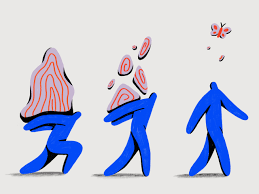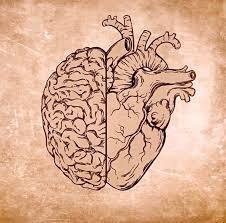On Having a Rough Go

I’ve been having a really rough time getting out of bed in the morning. There’s a lot of uncertainty concerning a very good friend, and the not-knowing anything is eating me alive. I walk around all day with a lump in my throat. I can’t sleep. I have trouble eating.
Maybe I should be writing about it.

There’s an article on the website for Writer’s Digest titled “7 Ways Writing Heals Us—Even After Terrible Trauma” by Barbara Nickless. She’s a published author and a creative writing teacher who predominantly works with veterans struggling with post-traumatic stress disorder. She’s also had her fair share of tragedy in her personal life, so she’s writing from lived experience and a credible position of authority. As if that wasn’t enough, she includes the hard data that proves writing has healing powers:
The science is real: Writing helps us manage our response to trauma. It boosts our immune system. Multiple studies conducted by scientists like James Pennebaker and others have shown the success of a writing practice in coping not only with trauma, but with day-to-day depression and anxiety. Writing returns a sense of control to our lives when they’ve been torn apart.
She goes on to explain — in detail — the seven ways writing can help us heal.
Processing our thoughts and fearsNickless writes, “Writing in all its forms helps us process our experiences and make sense of them. Because we’re narrative creatures, even a chaotic dump of thoughts, memories, to-do lists, ideas, goals, and more will begin to organize itself the more we write. We’ll find the narrative thread amidst the chaos and fill in the details of broken memories. This ultimately allows us to form a coherent life story.” I think this has been really important for me lately. I’ve been ensuring to write down what I’m hearing and thinking and feeling about all the uncertainty so I can try and piece things together and make sense of a bizarre situation.
Learning self-regulation
Nickless writes, “Writing helps us regulate our emotions and move toward calm.” This is undeniably true. When I get all the swirling thoughts down on paper and out of my head and out of my heart, I honestly feel better.
Using catharsis
Nickless writes, “Catharsis—κάθαρσις in ancient Greek—means “cleansing” or ‘purification,’ especially of negative emotions.” I’ve caught myself almost crying by the copier at work, or in the bathroom, or even at my desk. I can take a few deep breaths and write down some things in my journal and keep the tears at bay.
Managing triggers
Nickless advises, “Grab your journal or open your short story and capture your emotions on the page before they spiral out of control.” I am a BIG spiraler — my mind goes to worst case scenario in less than 60 seconds. Writing slows that downward trajectory down and forces me to consider each word I’m putting down on paper, so I have a better grasp on what’s improbable, what’s dramatic, what’s unfounded.
Finding purpose
Nickless writes, “One of the best ways to build resilience and create the meaningful life that trauma threatens to take from us is to have a purpose that extends beyond our day-to-day. When we commit to completing a writing project—however small or large—we find direction and momentum.” This blog post has been helpful, and I’ve recently been considering diving back into my larger work-in-progress and going to public spaces to write. It makes the project more tangible if I have to pack my bag and get in the car (or take a walk), and staying busy and producing meaningful material also helps to stop the spiral and rescue me from the mire of my thoughts.
Creating community
Nickless writes, “When we share our writing, whether as blog posts, short stories, essays, or novels, we’re reaching out and touching other lives, other minds, other hearts. And they are touching ours.” I was so incredibly touched by the comments and the number of people who reached out privately to talk to me about the blog post about my dad’s experience with the USCGC Blackthorn tragedy. And more people read my blog about my bad taste in men than I expected. What a privilege it is to have people spend their valuable time reading my writing.
Enjoying distraction
Nickless writes, “Rather than numbing ourselves with Netflix or alcohol, creating a story or crafting an essay can take our minds off our troubles, at least for a time.” And this is what I really need to get out of my writing at this moment in time — I desperately need the distraction. Escaping into a fictional world where I can know everything and control what characters say and do and think would be a great relief.

The post On Having a Rough Go appeared first on mandi bean: writer.



